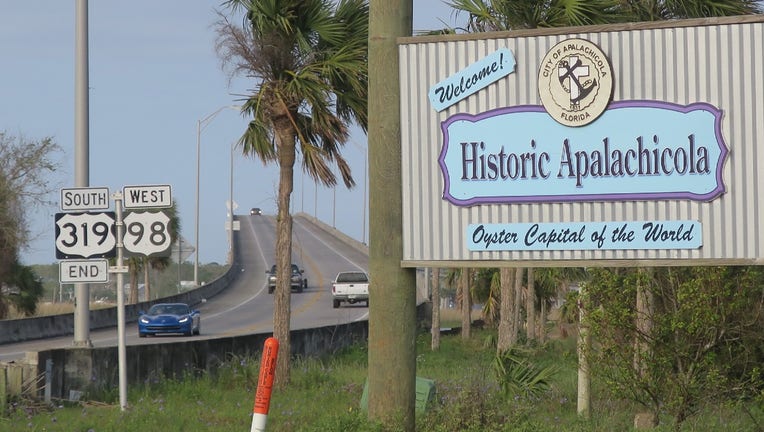Apalachicola Bay oysters harvesting put on ice

Scientists worry about the fate of the once-thriving oyster reefs of Apalachicola Bay and Cedar Key. (Kevin Spear/Orlando Sentinel/Tribune News Service via Getty Images)
TALLAHASSEE, Fla. - Apalachicola Bay oysters, sweet and salty mollusks best served raw on the half-shell with a little lemon juice, will be off the menu for up to five years in the latest effort to revive the oyster population in the Franklin County bay.
The Florida Fish and Wildlife Conservation Commission unanimously agreed Wednesday to issue an order that will ban the harvesting of wild oysters starting Aug. 1 from Apalachicola Bay as part of a $20 million restoration effort.
The bay, which once supplied more than 90 percent of Florida’s oysters, has been on life support for nearly a decade due to drought, overharvesting, and, according to Florida officials, the drain of freshwater at the heart of the state’s “water war” with Georgia.
“I think that this restoration effort, while it's going to be a lot of work, and I'm not sure what the result is going to be, this has got to be one of the most exciting projects that we have in front of us,” Fish and Wildlife Conservation Commission Chairman Robert Spottswood said during an online meeting. “I mean, if we are really able to restore Apalachicola Bay and to bring this fishery back, that would be one exciting success.”
Franklin County Commission Chairman Noah Lockley, Jr., cautioned the ban will be the latest issue taking jobs from the community, which in the past few years also has faced Hurricane Michael, home-destroying wildfires and the coronavirus pandemic.
“We don't have that much work down in this area, so they’re going to need some help,” Lockley said.
While supporting efforts to help the area’s remaining oyster harvesters, commission Executive Director Eric Sutton said the restoration effort is needed because the bay “is essentially no longer functioning as an oyster fishery.”
“It's not that we're shutting down the oyster business,” Sutton said. “We're doing what's necessary to rebuild the oyster industry.”
Money for the restoration effort is coming from the National Fish and Wildlife Foundation’s Gulf Environmental Benefits Fund. That fund receives money from a settlement with BP and Transocean over the 2010 Deepwater Horizon disaster.
Marine and seafood groups backed the restoration effort, which only applies to wild oysters.
Steven Rash, the owner of Water Street Seafood in Apalachicola, said he and others have been asking for the ban for five years after the once-vibrant oyster industry essentially ended.
“You cannot rebuild and take away at the same time,” Rash said. “If the bay is not closed, any oysters that appear will quickly be harvested. The bay should be reopened to commercial fishing when the abundance of oysters is at a level that can support a commercial harvest.”
The freshwater flow into the bay was already on the decline in 2013 when the bay was declared a disaster area by the federal government.
In just over a decade, as most oyster harvesters shifted their attention to other areas of the state, production in the bay dropped from nearly 3 million pounds in 2009 to 21,000 pounds last year.
Florida and Georgia continue to fight at the U.S. Supreme Court about divvying up water that flows into the Apalachicola River and Apalachicola Bay.
The issue centers on the Apalachicola-Chattahoochee-Flint river system, which starts in northern Georgia and flows south into the Florida Panhandle.
Florida contends, in part, that Georgia has used too much water from the system, damaging the oyster fishery.
In arguments filed at the Supreme Court, however, Georgia disputed that its water use has caused damage in Florida. Also, it said Florida’s request for an “equitable apportionment” of water --- effectively seeking to place limits on Georgia water use --- would have major economic ramifications.
A special master appointed by the Supreme Court sided with Georgia in December, but justices will have the final say in the case.
Fish and Wildlife commissioners were told Wednesday that any conclusion to the case may be at least a year away.

